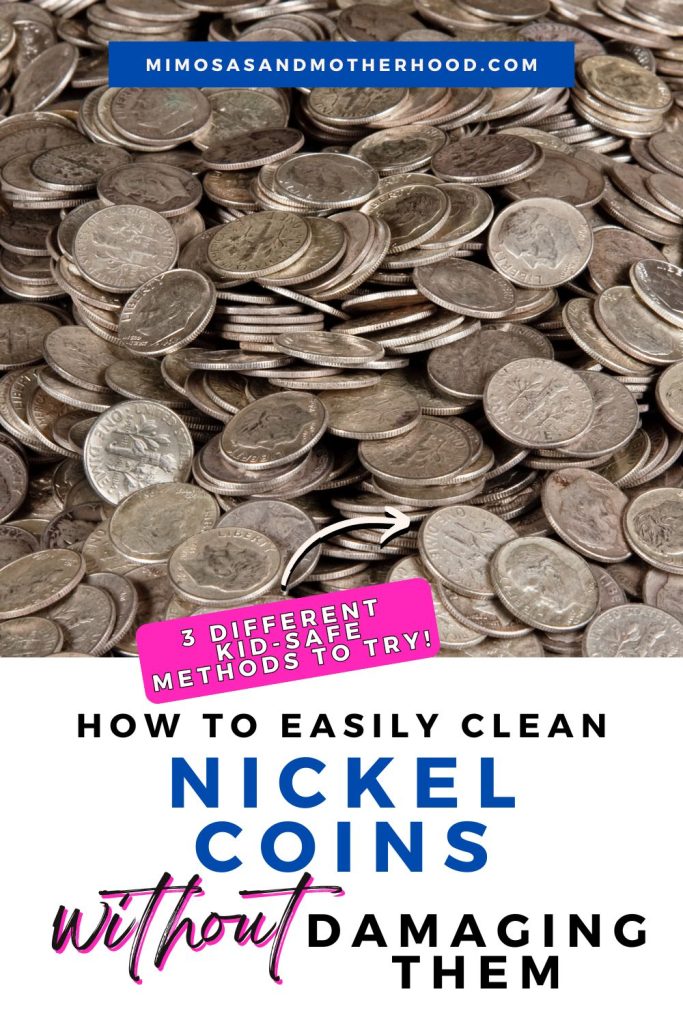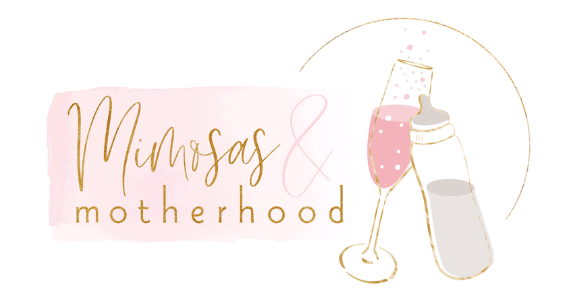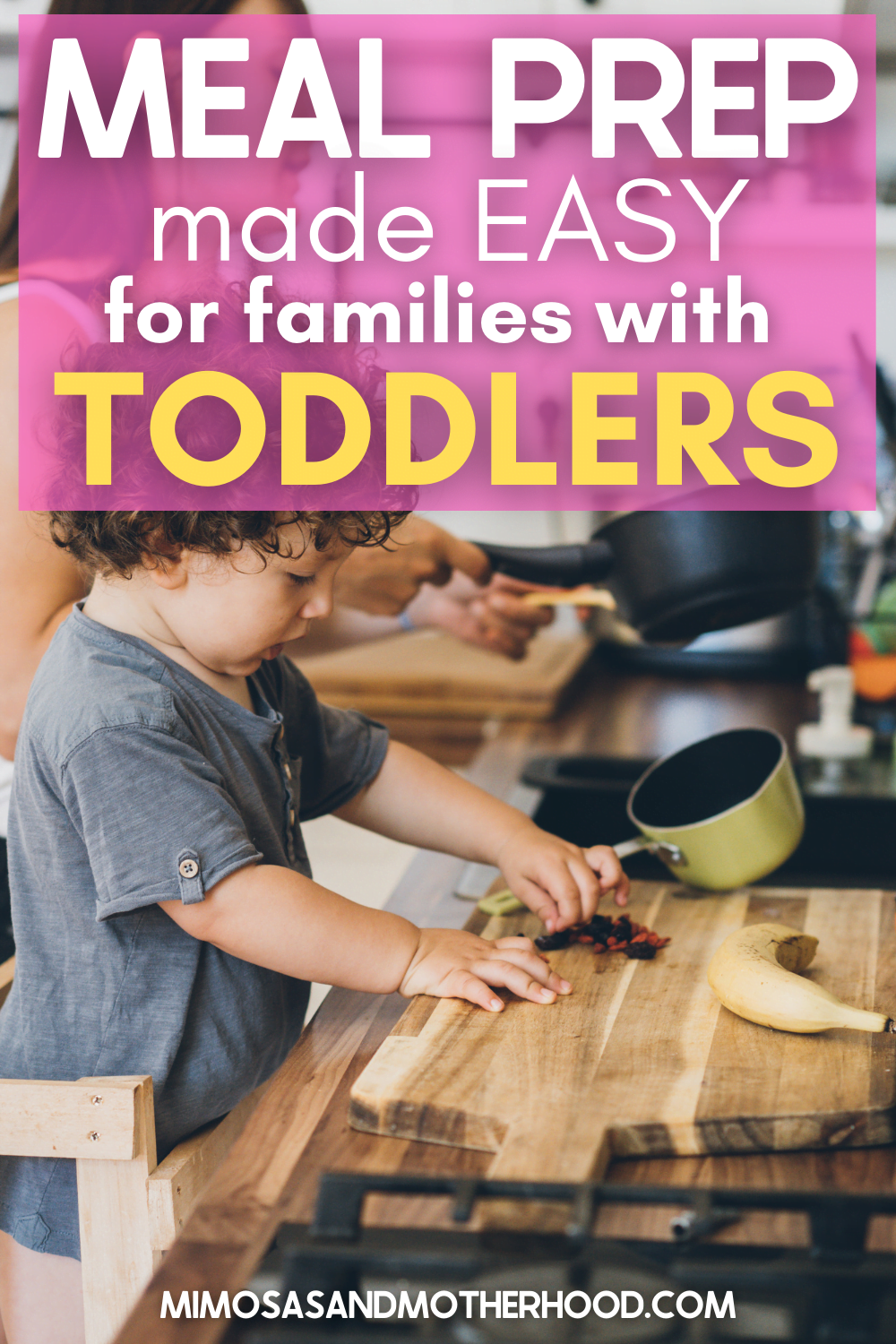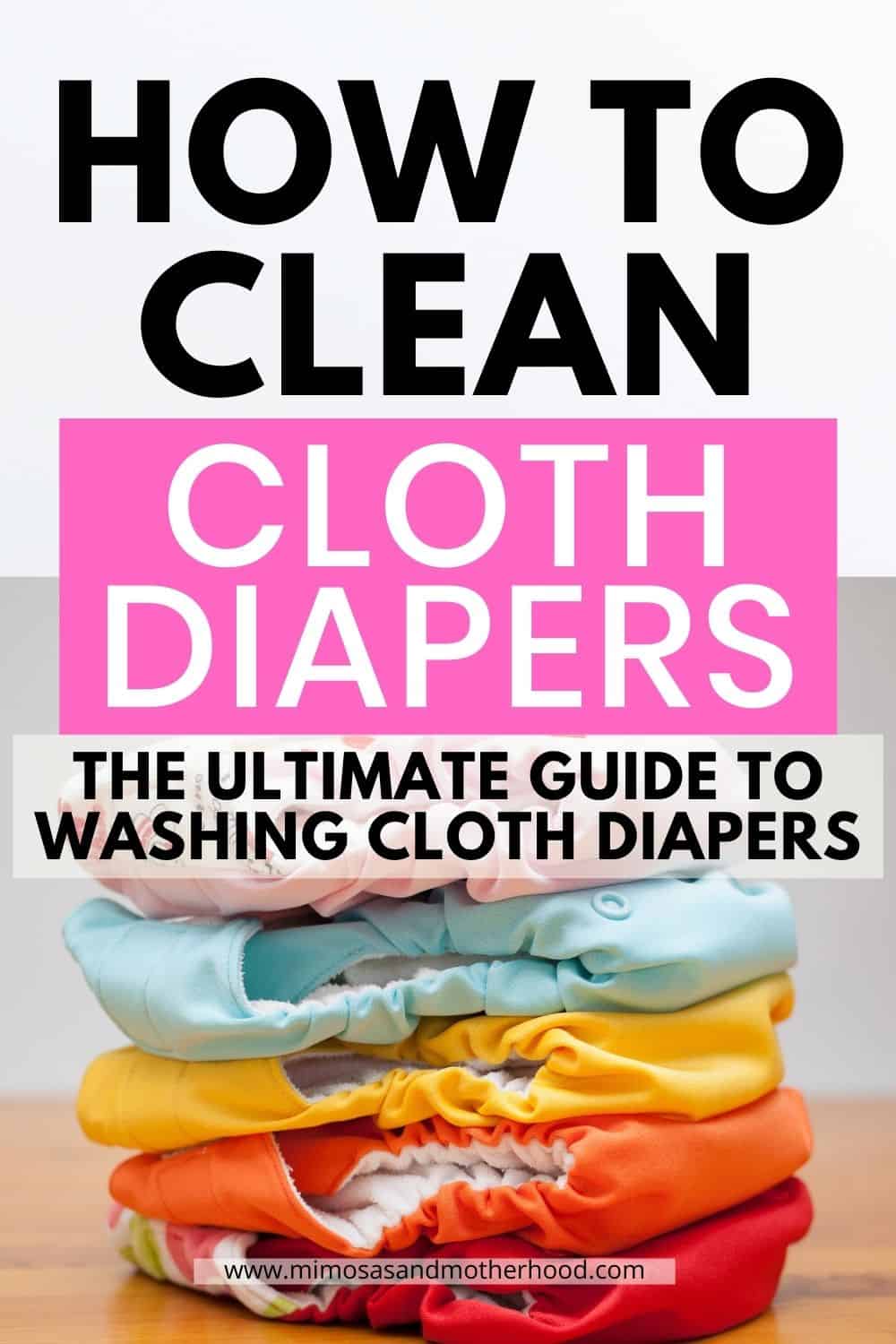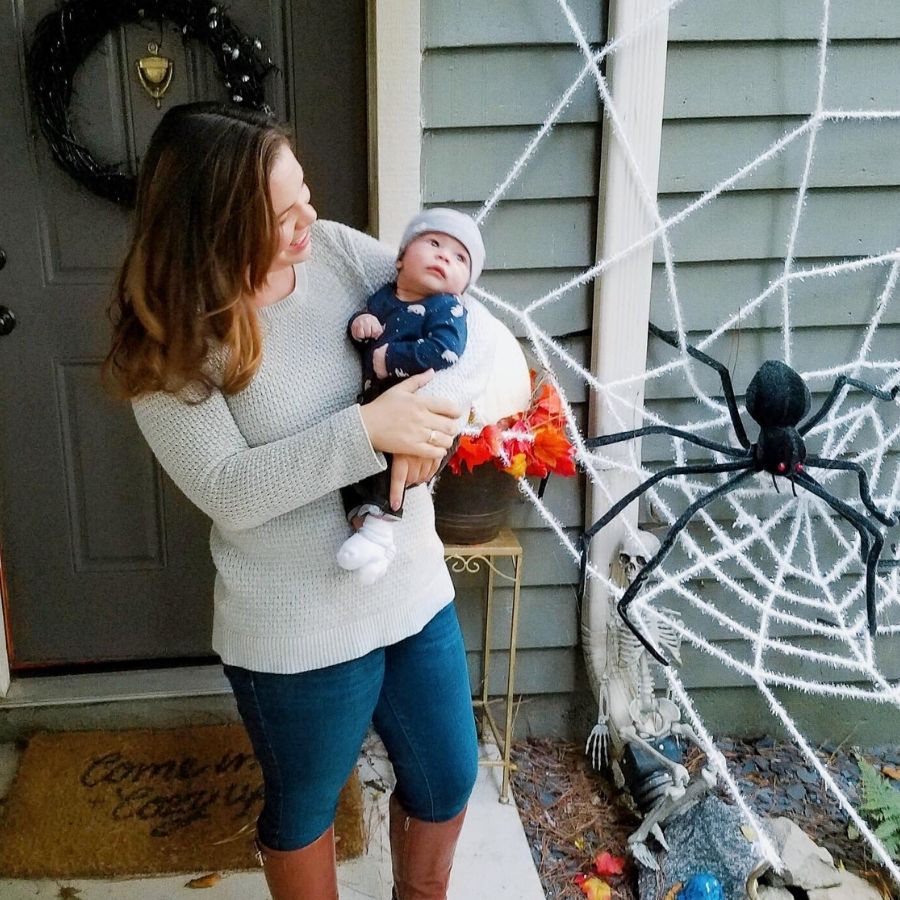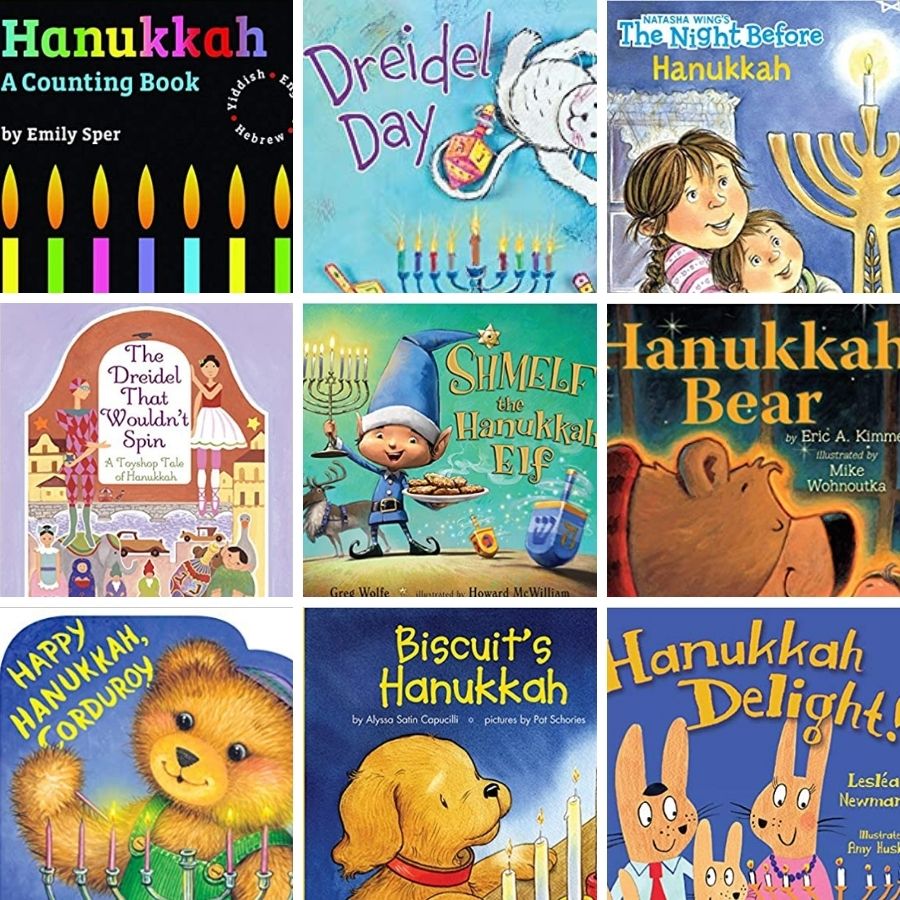How to Clean Nickel Coins Safely
Safely clean nickel coins with kid-friendly methods using warm water, olive oil and more—without damaging their value or collectible worth.
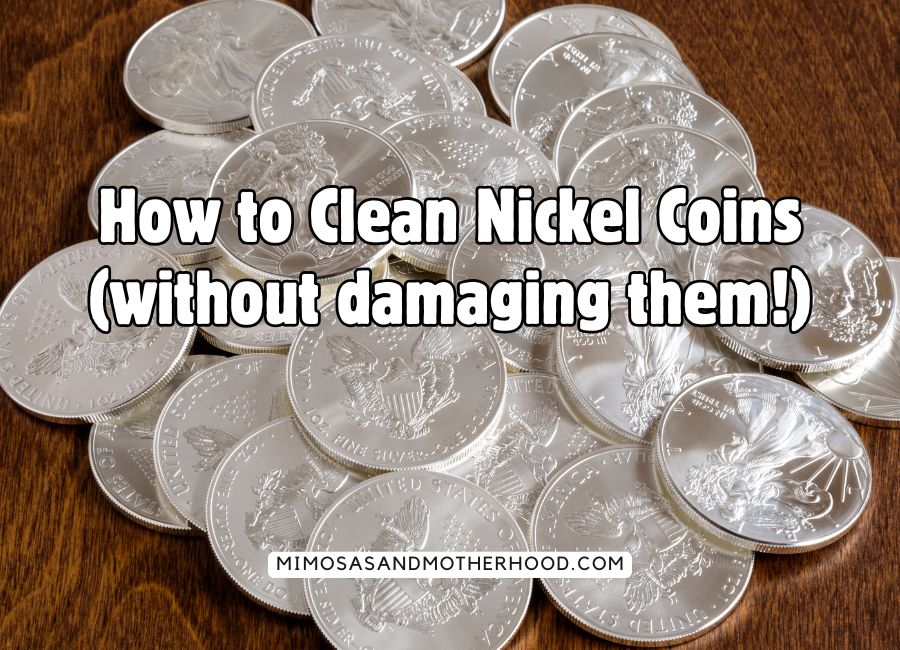
If you’re a mom of young kids, you know the treasure hunt never ends. Whether it’s rocks, bottle caps, or random bits of string, kids love collecting things—but nothing sparks their excitement quite like a shiny coin on the ground.
Maybe you’ve noticed your child holding up a dirty nickel they found at the park, beaming like they just found buried treasure. As a mom of three, this happens all the time!
Before that “treasure” gets added to their coin collection (or worse, ends up in their mouth!), it’s a good idea to give it a proper cleaning, without damaging its value.
Whether you’re new to coin collecting, have a growing interest alongside your little one, or just want to clean up a few dirty coins, this guide will walk you through the best way to clean nickel coins using household items like warm water, soapy water, soft cloth and more.
Note: Some links may be affiliate links. That means I may make a commission if you use my links to purchase, at no extra added cost to you! I only recommend products that I personally love and believe in. Full disclaimer here.
Why Clean Nickel Coins
Nickel coins, especially older coins like the Buffalo Nickel, can accumulate grime, bacteria, and oxidation over time. When your child hands you an old nickel that looks like it’s been buried since the 1950s, it’s natural to want to give it a refresh.
Cleaning helps remove bacteria and dirt, making the coin safer for children to handle. However, if you’re dealing with collectible coins, improper cleaning can reduce their numismatic value.
By the way, this post only covers nickel coins. If you have children like mine who also pick up every single penny, be sure to also read How to Clean Copper Coins Without Damaging Them.
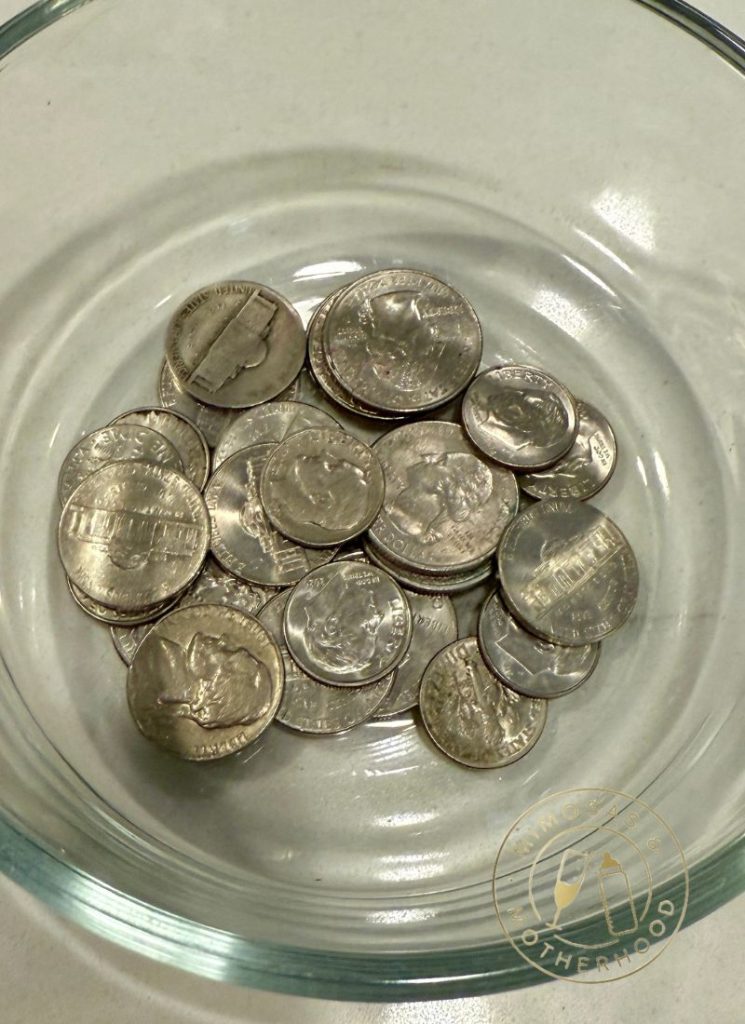
The First Step: Determine If It Should Be Cleaned
Before using any homemade cleaning solutions, examine the coin:
- Is it a key date coin?
- Is it a rare coin or part of a valuable set?
- Is it a proof coin with a pristine finish?
If yes, consult a coin dealer or ask for advice in a coin community forum. In many cases, cleaning could do more harm than good.
If it’s a typical Canadian coin, liberty quarter or something your child picked up off the ground, you can move forward with gentle cleaning.
What You’ll Need
Gather these gentle cleaning tools:
- Warm water or clean distilled water
- Weak soap (like dish soap)
- A plastic container
- A soft toothbrush
- A soft cloth or paper towel
- Optional: olive oil, lemon juice, white vinegar, cotton bud
Avoid: acid-based cleaners, silver dip, steel wool, SOS pad, or anything that may scratch or erode the coin’s surface.
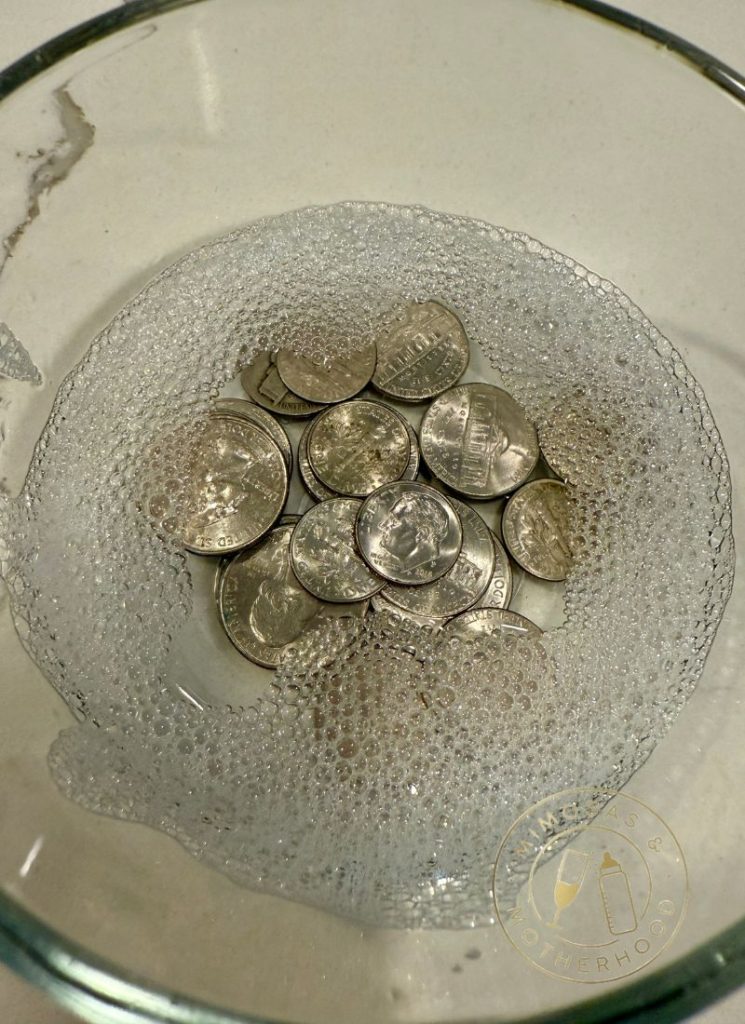
Method 1: Soapy Water Soak (Safest for the Average Collector)
This is the safest way to clean old coins, especially when children are involved.
- Fill a plastic container with warm water and a drop of weak soap.
- Place the dirty coins in the solution and let them soak for 10–15 minutes.
- Use a soft toothbrush to gently scrub the sides of the coin.
- Rinse with clean distilled water or tap water.
- Pat dry with a soft cloth or paper towel.
This method is ideal for everyday nickel coins, copper coins, and brass coins.
Method 2: Olive Oil Soak (Great for Older Coins)
This slower, more natural method works wonders on older coins with tough grime.
- Place the coin in a dish filled with olive oil.
- Let it sit for several days to a few weeks.
- Remove and clean using soapy water and a soft toothbrush.
- Rinse with distilled water and dry with a clean cloth.
Especially effective for Buffalo nickels, bronze coins, and world silver coins.
Method 3: Lemon Juice & Vinegar (Use With Caution)
This is a more acidic solution and should be used only on common or non-valuable coins.
- Mix equal parts lemon juice and white vinegar.
- Submerge the coin for no more than 30 seconds.
- Gently scrub with a soft toothbrush.
- Rinse with clean distilled water.
- Dry with a soft cloth.
Not recommended for valuable coins due to the potential to damage the coin’s surface.
Things to Avoid When Cleaning Nickel Coins
Never use the following on coins you care about:
- Silver dip – meant for gold coins or jewelry, not nickel.
- SOS pad or steel wool – extremely abrasive.
- Acid-based cleaners – can destroy the coin’s protective layer.
- Homemade scrubs with salt or baking soda – harsh on the coin’s metal.
Make It a Family Activity!
Cleaning coins can be a fun and educational activity! My 5 and 6 year olds get really into it each time.
- Teach kids about different metals: nickel, copper, brass
- Use a magnifying glass to observe details with the naked eye
- Talk about collectible coins like the key date coin or liberty quarters
- Look up new topics in a coin forum
You may be raising a future numismatist, or at the very least, sharing a few moments of wonder and discovery.
When to Call an Expert
If you come across a coin that seems unusual, consult a coin dealer before attempting any coin cleaning. Sometimes, the only thing protecting its value is the patina.
Use resources like a trusted coin community forum to get guidance before moving forward.
Related Cleaning Posts:
- How to Clean Cloth Shoes (Fabric, Canvas)
- How to Clean Copper Coins Without Damaging Them
- How to Clean Carpet and Get Rid of Spills, Stains and Smells
Final Thoughts on Cleaning Nickel Coins
Whether your child found a **good luck** nickel on the sidewalk or you’re just decluttering an old piggy bank, cleaning coins can be rewarding when done right. With a little care, you can clean and preserve your family’s finds—maybe even stumble upon something worth keeping!
Happy cleaning—and happy collecting!
If you enjoyed this DIY project, be sure to pin it on Pinterest using the image below to make it easier to find next time!
